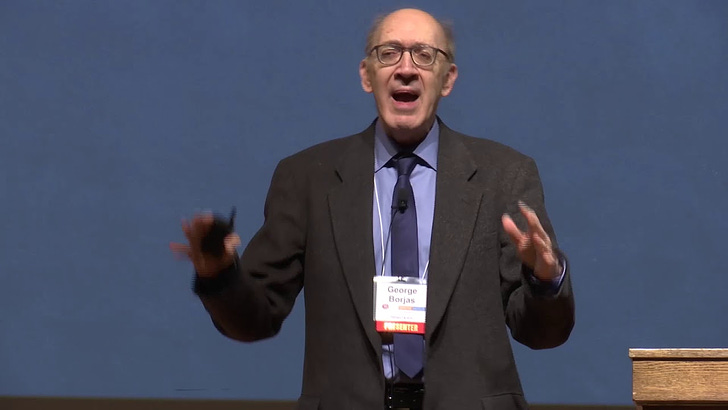Before the fictional musical Borjas-Caplan immigration debate of 2024, there was the non-fictional non-musical Borjas-Caplan immigration debate of 2019. It was an unusual format: Both of us had the floor for over hour each.
Borjas:
Me:
If you pay close attention to my opponent’s presentation, you’ll discover that he’s quite unlike every other critic of immigration. In a strange sense, he’s not a critic of immigration at all. Instead of asserting that immigration is bad, Borjas mostly insists that immigration research is bad. Since experts barely know more than the man in the street, the man in the street needn’t feel ashamed to “go with his gut.”
Officially, Borjas is then content with whatever immigration policy gut-based democracy delivers. (Though he definitely seems to realize — and even revel in — that median gut favors tighter immigration restrictions).
As this 2016 interview reveals, Borjas is one of those victims of Communism whose chief takeaway is not that statism is evil, but that ideology is evil. In my words:
Most victims of Communism, in my experience, take away lessons like, “Human rights matters,” “Government should respect individual liberty,” “The fact that government does something doesn’t make it right,” “Forbidding emigration is monstrous,” or just “Socialism is evil.” Borjas, in contrast, takes away the lesson that “Ideology is bad.” Which is simply bizarre. Castro ruined Borjas’ native Cuba because his ideology was totalitarian. If Castro’s ideology had been pro-market and pro-freedom, Cuba would be a great place today – and Borjas might be at the University of Havana writing books to keep immigrants out of Cuba instead.
To belabor the obvious, belief in gut-based democracy isn’t just an ideology, too. It’s one of the silliest.




The idea that ideological zealotry is an evil and moderation combined with trusting the public is a virtue, is neither silly or uncommon.
Remember when you wrote about your fear biggest fear of homogenous societies, and how you wanted to make sure the world is completely heterogeneous and fractured: https://www.econlib.org/archives/2015/10/they_scare_me.html. I wonder if that has anything to do with your open borders views?